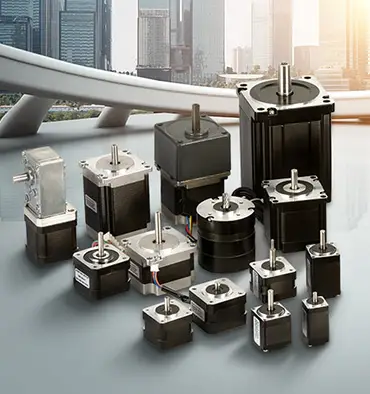Are stepper motors brushless?
Stepper motors are electric motors that are designed to rotate in precise increments, or steps, rather than continuously. These motors are widely used in a variety of applications, including CNC routers, 3D printers, and other precision machines. One question that often arises when working with stepper motors is whether they are brushless or not. In this article, we will explain the different types of stepper motors and how they differ in terms of brushless operation.
There are two main types of stepper motors: unipolar and bipolar. Unipolar stepper motors have a single winding per phase, and they are typically easier to drive than bipolar motors. Bipolar stepper motors, on the other hand, have two windings per phase, and they are generally more powerful and precise than unipolar motors. Within these two categories, there are brushless and brushed stepper motors.
Brushless stepper motors are designed to operate without the use of brushes, which are small, sliding electrical contacts that transfer electricity between the stator and rotor of a motor. Brushless motors are generally more efficient, reliable, and long-lasting than brushed motors, which rely on the movement of the brushes to transfer electricity. Brushless motors are also typically quieter and produce less electrical noise than brushed motors.
So, are stepper motors brushless? The answer is that stepper motors can be either brushless or brushed, depending on the specific design and characteristics of the motor. Some stepper motors, such as hybrid stepper motors, use a combination of brushless and brushed technology to achieve a balance of performance and cost. When selecting a stepper motor for your application, it is important to consider the specific benefits and drawbacks of brushless and brushed motors to determine which type is the best fit for your needs.
In conclusion, stepper motors can be either brushless or brushed, depending on the specific design and characteristics of the motor. Brushless motors are generally more efficient, reliable, and long-lasting than brushed motors, but they may also be more expensive. By understanding the key differences between brushless and brushed stepper motors, you can choose the right type of motor for your application and ensure that it performs to your satisfaction.
"Are Stepper Motors Brushless? Understanding the Different Types of Stepper Motors"
Stepper motors are electric motors that are designed to rotate in precise increments, or steps, rather than continuously. These motors are widely used in a variety of applications, including CNC routers, 3D printers, and other precision machines. One question that often arises when working with stepper motors is whether they are brushless or not. In this article, we will explain the different types of stepper motors and how they differ in terms of brushless operation.
There are two main types of stepper motors: unipolar and bipolar. Unipolar stepper motors have a single winding per phase, and they are typically easier to drive than bipolar motors. Bipolar stepper motors, on the other hand, have two windings per phase, and they are generally more powerful and precise than unipolar motors. Within these two categories, there are brushless and brushed stepper motors.
Brushless stepper motors are designed to operate without the use of brushes, which are small, sliding electrical contacts that transfer electricity between the stator and rotor of a motor. Brushless motors are generally more efficient, reliable, and long-lasting than brushed motors, which rely on the movement of the brushes to transfer electricity. Brushless motors are also typically quieter and produce less electrical noise than brushed motors.
So, are stepper motors brushless? The answer is that stepper motors can be either brushless or brushed, depending on the specific design and characteristics of the motor. Some stepper motors, such as hybrid stepper motors, use a combination of brushless and brushed technology to achieve a balance of performance and cost. When selecting a stepper motor for your application, it is important to consider the specific benefits and drawbacks of brushless and brushed motors to determine which type is the best fit for your needs.
In conclusion, stepper motors can be either brushless or brushed, depending on the specific design and characteristics of the motor. Brushless motors are generally more efficient, reliable, and long-lasting than brushed motors, but they may also be more expensive. By understanding the key differences between brushless and brushed stepper motors, you can choose the right type of motor for your application and ensure that it performs to your satisfaction.


Leave a Reply